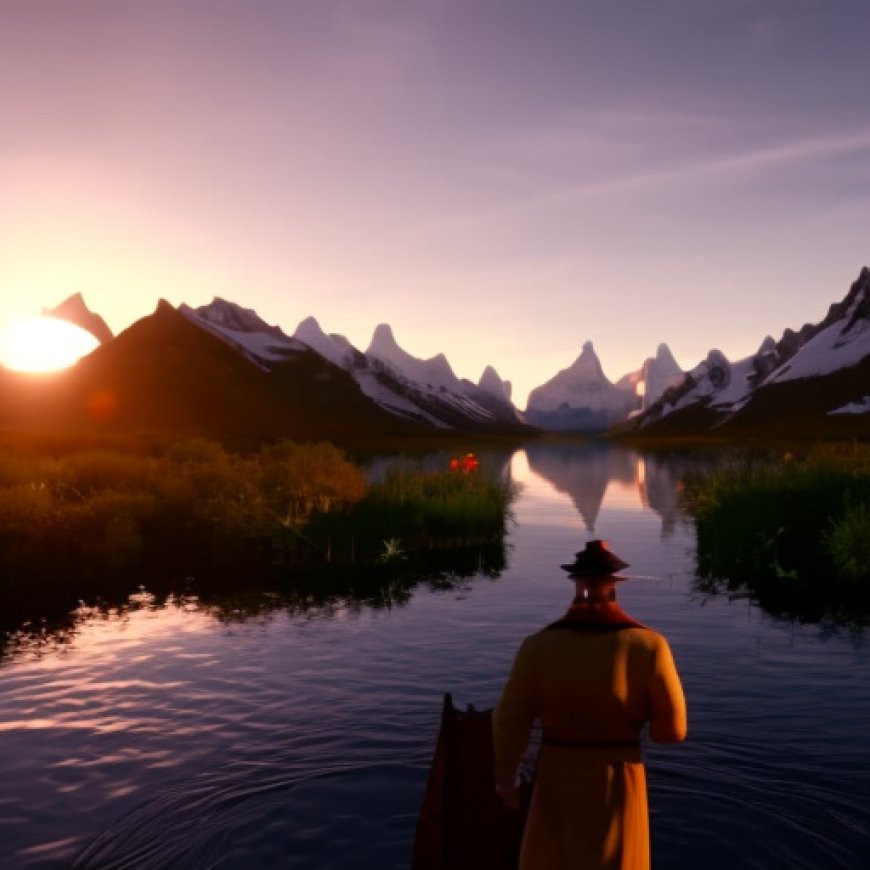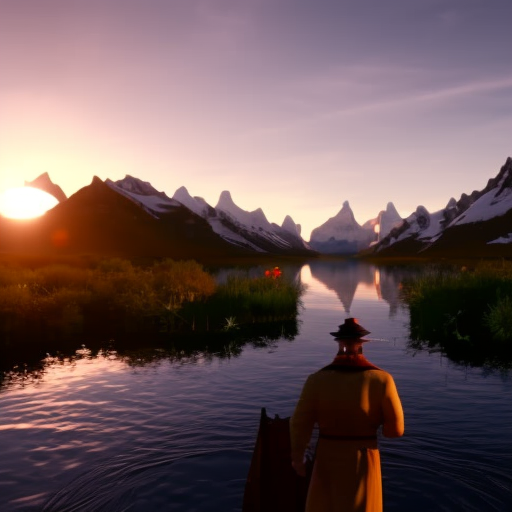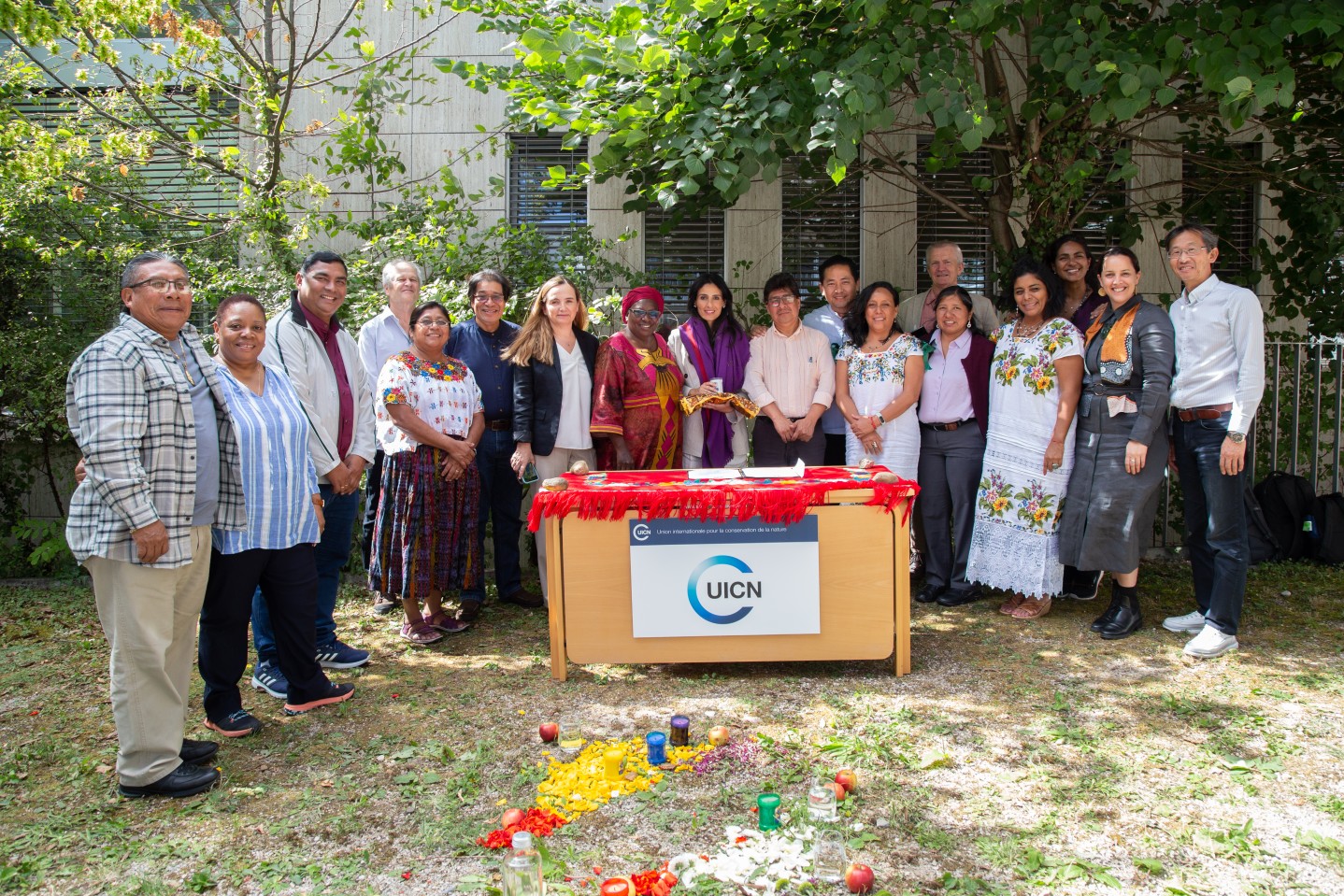New initiative to support indigenous contributions to biodiversity conservation and climate solutions
New initiative to support indigenous contributions to biodiversity ... IUCN


The Podong Indigenous Peoples’ Initiative: Recognizing and Supporting Indigenous Contributions to Biodiversity Conservation and Climate Solutions

The new Podong Indigenous Peoples’ Initiative aims to “recognise and support Indigenous peoples’ contributions to the conservation of biodiversity and climate solutions through their Indigenous knowledge systems; while ensuring their full and effective leadership and access to adequate resources for the implementation and achievement of the Kunming Montreal Global Biodiversity Framework, the IUCN Global Indigenous Agenda, the Paris Agreement and other initiatives”.
A Memorandum of Understanding to co-design, co-develop and co-implement the Podong Initiative was signed in Gland, Switzerland on 4 August 2023, closing a week of meetings that involved the IUCN President, the IUCN Acting Director General, and representatives from IUCN Indigenous Peoples’ Organisation Members and the IIFB.
The Significance of “Podong”
Podong, meaning basket in the indigenous Marma language of Bangladesh, symbolises harvesting abundance and the role and contributions that indigenous women play in conserving biodiversity and reducing the impacts of climate change in their communities.
Emphasizing Indigenous Contributions
“For nature conservation to be truly effective, it is vital that the important contributions made by Indigenous peoples are fully recognised and supported. This agreement reinforces our Union’s commitment to continue working closely with Indigenous peoples towards achieving global biodiversity and climate goals,” said IUCN President Razan Al Mubarak.
Pillars of Action
The new initiative envisages four pillars of action:
- Capacity building
- Scaling up work with Indigenous peoples at the territorial level
- Empowering Indigenous peoples-led design in the development of direct funding approaches
- Recognising and maintaining Indigenous peoples’ leadership in international spaces and platforms
“Indigenous peoples’ deep-rooted knowledge and experience are vital to the success of global efforts to address biodiversity loss and climate change. In IUCN we are proud to work with Indigenous leaders, recognising their key role in conserving nature and in ensuring a better future for people and planet,” said Dr Grethel Aguilar, IUCN Acting Director General.
“This initiative is the result of the work that IUCN is doing for the rights and contributions of Indigenous peoples to nature conservation to be recognised and respected. This is also the seed that will bear fruits in strengthening and growing the GEF-funded Inclusive Conservation Initiative (ICI), and towards the establishment of an Indigenous science centre with IUCN,” said Ramiro Batzin, IUCN’s IPO representative and IUCN’s vice-president.
“I thank IUCN on behalf of the IIFB. We are excited that IUCN is supportive of this initiative as it makes it clear that we have the same objective of recognizing and promoting the rights of Indigenous Peoples and the role they play in the conservation of biodiversity, especially the role of indigenous youth, girls and women,” said Lucy Mulenkei, Co-chair of the IIFB.
“We are at a critical crossroads to reconcile the wrongs that conservation has done to Indigenous peoples in the past and contribute to redirecting the path of conservation to collectively heal Mother Earth,” said Anita Tzec, IUCN’s Senior Program Manager on Indigenous Peoples and Conservation. “IUCN is placed in a key position to do this, and it must be done in conjunction with Indigenous peoples, placing their traditional knowledge as the heartbeat of the Podong initiative, supporting their priorities and protecting their rights. This is a historic moment through which IUCN and Indigenous peoples have cemented their partnership for the benefit of nature and for all of humanity.”
Focus on Indigenous Youth as Agents of Change
In line with this year’s theme for the celebration of the International Day of the World’s Indigenous Peoples on August 9th, the Podong initiative will include a strategic focus on “Indigenous youth as agents of change for self-determination“, recognising that the intergenerational transfer of traditional knowledge and building the new cohort of Indigenous leaders are key for continued Indigenous peoples-led biodiversity conservation and climate solutions.
SDGs, Targets, and Indicators
| SDGs | Targets | Indicators |
|---|---|---|
| SDG 13: Climate Action | Target 13.2: Integrate climate change measures into national policies, strategies, and planning | No specific indicators mentioned in the article |
| SDG 15: Life on Land | Target 15.5: Take urgent and significant action to reduce the degradation of natural habitats | No specific indicators mentioned in the article |
| SDG 17: Partnerships for the Goals | Target 17.16: Enhance the global partnership for sustainable development | No specific indicators mentioned in the article |
1. Which SDGs are addressed or connected to the issues highlighted in the article?
- SDG 13: Climate Action
- SDG 15: Life on Land
- SDG 17: Partnerships for the Goals
The article discusses the new Podong Indigenous Peoples’ Initiative, which aims to recognize and support Indigenous peoples’ contributions to biodiversity conservation and climate solutions. This aligns with SDG 13 (Climate Action) and SDG 15 (Life on Land), which focus on addressing climate change and protecting terrestrial ecosystems.
The article also mentions the signing of a Memorandum of Understanding and the importance of partnerships. This relates to SDG 17 (Partnerships for the Goals), which emphasizes the need for collaboration and cooperation to achieve sustainable development.
2. What specific targets under those SDGs can be identified based on the article’s content?
- Target 13.2: Integrate climate change measures into national policies, strategies, and planning
- Target 15.5: Take urgent and significant action to reduce the degradation of natural habitats
- Target 17.16: Enhance the global partnership for sustainable development
The article does not explicitly mention these targets, but based on the content, it can be inferred that the Podong Indigenous Peoples’ Initiative aims to contribute to these targets. The initiative seeks to integrate Indigenous knowledge systems into biodiversity conservation and climate solutions (Target 13.2), take action to protect natural habitats through Indigenous-led efforts (Target 15.5), and enhance partnerships between Indigenous peoples, IUCN, and other stakeholders (Target 17.16).
3. Are there any indicators mentioned or implied in the article that can be used to measure progress towards the identified targets?
No specific indicators are mentioned or implied in the article that can be used to measure progress towards the identified targets.
Behold! This splendid article springs forth from the wellspring of knowledge, shaped by a wondrous proprietary AI technology that delved into a vast ocean of data, illuminating the path towards the Sustainable Development Goals. Remember that all rights are reserved by SDG Investors LLC, empowering us to champion progress together.
Source: iucn.org

Join us, as fellow seekers of change, on a transformative journey at https://sdgtalks.ai/welcome, where you can become a member and actively contribute to shaping a brighter future.







